December 2022: Olive Tree

Volume VII/Issue 9/December 2022


From The Editorial Desk

Thoughts on Advent
Sin Is Like a Rattlesnake
“What happened to your finger?” I asked a man who had lost his index finger.
“A snake bit me.”
“How did a snake bite you?” I pressed, my curiosity aroused.
“The stick broke!”
“What stick? What were you doing?” I continued.
It seems that he had caught a large rattlesnake. He kept this deadly monster in a cage; thus it had never attempted to strike him.
However, one day he took it into the living room to tease his wife. He dumped it out of a bag onto the floor. As she fled in terror, he quickly took a stick and placed it behind the snake’s head, holding it firmly to the floor.
As the snake writhed and twisted, the man pushed harder on the stick. Suddenly the stick gave way with a loud crack, breaking in the middle. As quick as lightning, the huge rattler arched its back and struck. Its deadly fangs, filled with poison, stuck into the man’s extended finger.
Prompt medical treatment saved the man’s life, but his finger had to be amputated.
Sin is like a rattlesnake. You can’t tease it nor play with it. Sin is never satisfied until it has injected its deadly poison into your life and soul. The best way to kill paralyzing sin is the same way you should kill a rattlesnake—quickly and completely.
“But in the end, it [sin] will bite like a snake, and will spread abroad poison like a adder. ”—Proverbs 23:32.
The The Keynote of the Bible
“God is love.”—I John 4:8.
That is one of the shortest sentences ever written and it is certainly one of the greatest and profoundest. It is inexhaustible in its meaning and scope.
Men have been studying scrutinizing, pondering and digging into that sentence through the centuries that have passed since it was written and they have not exhausted it yet.
Thousands upon thousands of sermons have been preached upon that text, yet something new awaits every one who studies it and seeks to expound it.
Thousands of volumes have been written by some of the world’s greatest thinkers, devoted to the study, exposition and application of that sentence; but it is as fresh and full as ever. And it is constantly yielding new treasures to each new century and to each new explorer of its exhaustless wealth. Men and angels will ponder that sentence throughout the endless ages of eternity and not exhaust it.
The Book that contains that matchless sentence bears the unmistakable seal of having God for its Author. The golden truth of priceless worth contained in this sentence is peculiar to the Bible.
All the philosophers in the world never discovered that stupendous truth until God revealed it and the Bible declared it. The world would never have known that “God is love” had not God revealed the fact in His own Word.
It is true that there are evidences of beneficient design in nature and in history, but nature and history have both been marred in Satan’s work and by the entrance of sin into the world. It is only that interpretation of history and that insight into the history of man and nature and Satan that the Bible gives that enables us to see love reigning above all and through all.
We hear much in these days of the profound truths contained in the teachings of the world’s great philosophers of ancient and modern times; in philosophers like Socrates, Plato, Aristotle, Seneca, Marcus Aurelius, Antonicus and in the teachings of the founders of religions like Buddha, Mohammed, Confucius; but in none of them do we find this great truth that “God is love,” nor anything akin to it; not until the Church revealed it. We own this truth wholly and solely to the Bible handed down to the Church by God. We must go then, to the Church for the interpretation of this truth found within the pages of scripture.
This sentence is the keynote, the great fundamental thought of the Bible. If anyone were to ask me to put into one sentence what the Bible teaches, this would be the sentence, “God is love.”
From start to finish, from Genesis 1:1 to Revelation 22:21, the Bible is one great, ever-swelling anthem; and the theme of that anthem is “God is love.” God’s love is the keynote of the whole Bible, of each of the sixty-six books that go to make up the completed whole.
It was the love of God that led to the Creation, as described in the first chapter of Genesis. It was God’s love that led to the banishment of Adam and Eve from the Garden of Eden when they fell, as recorded in the third chapter of Genesis.
It was God’s love that led to the promise of the Saviour, the seed of the woman, immediately after Adam and Eve had fallen.
It was God’s love that led to the call of Abraham and Jacob to be a blessing first to their own descendants and ultimately to the whole human race.
It was God’s love that led to the bondage of Israel in Egypt and to their deliverance from that bondage when the time was ripe.
It was God’s love that led to the giving of the Law through Moses on Sinai; and it was God’s love that led to the extermination of the Canaanites.
It was God’s love that led to the planting of Israel in that land so wondrously adapted by its natural configuration and by its location in the then inhabited world to be the training place of the nation that should bring blessing to the whole earth and from which the Saviour should be born.
It was God’s love that shaped Israel’s history through all their wanderings from Him.
It was God’s love that sent Jesus Christ to die for sinful men, to rise again from the dead and to ascend to the right hand of the Father in the glory. And it will be God’s love that will send Him back again to earth when the fullness of time for that greatest event in all this earth’s history has come.
Yes, “God is love” is the keynote of the Bible, the secret of history, the explanation of nature and the solution of eternity’s mysteries.
Biden Quietly Created Task Force in July to Target Pro-Life Americans
Pro-life Americans are up in arms about the FBI targeting peaceful pro-life advocates, raiding their homes and arresting them.
The Biden administration has been under heavy criticism as Joe Biden’s Justice Department targets peaceful pro-life Americans for protesting abortions in such…a way that they blocked access to an abortion center.
The Justice Department has charged 11 more pro-life activists with violations of the Freedom of Access to Clinic Entrances Act for blocking the entrance of an abortion clinic in 2021.
The 11 activists were charged with FACE Act violations stemming from their 2021 “blockade” of an abortion clinic in Mount Juliet, Tennessee. Why are pro-life Americans being targeted like never before for peacefully protesting abortion?...
The DOJ’s Reproductive Rights Task Force was announced on July 12 with the stated goal of “protect[ing] access to reproductive health care,” which means abortion. Associate Attorney General Vanita Gupta, a former ACLU lawyer, heads the task force.
Conservative High School Students Can Criticize Abortion Proposal During Morning Announcements, Federal Judge Rules
Republican students at one Michigan high school may issue a morning announcement that criticizes a statewide abortion proposal on the ballot this year, a federal judge has ruled. …
Judge Paul D. Borman of the Eastern District of Michigan determined that administrators at Skyline High School in Ann Arbor, Michigan, violated the First and Fourteenth Amendment rights of conservative students when they forbade the students to make an announcement that denounced Proposal 3, a proposal on the Michigan ballot…that would make abortion a state constitutional right.…
Judge Borman sided with the plaintiffs, arguing that the school sought “to silence” their “appropriate speech” against the proposal, even as the school had either directly or indirectly approved of student demonstrations in favor of it.
Court documents indicate that school administrators knew that a student chapter of the National Organization of Women had organized a “walk-out” in favor of Proposal 3 on school property during school hours on November 7. “Permitting students in favor of Proposal 3 to cut classes and to demonstrate on school property in favor of Proposal 3,” while at the same time rejecting the anti-Proposal 3 message…because of its “political nature,” violated the club members’ “rights under the First and Fourteenth Amendments to the Constitution,” Borman wrote.
Mom Blasts School Board for Promoting “Family-Friendly” Halloween Drag Show
Parents are rallying behind a mother who blasted a Southern California school district for its plans to host a “family-friendly” Halloween drag show, which she said amounts to “pimping out our kids” in an already “hyper-sexualized” culture. …
Brittany Mayer from the Christian-based parental rights group Rooted Wings spoke at the Encinitas Union School District Board meeting in San Diego County, California, accusing them of acting as “groomers and activist pimps” for the “Boo Bash” drag queen show planned for the Saturday before Halloween, Fox News reported.…
…Mayer revealed that the drag queen show was sponsored by a local San Francisco gender reassignment surgery center in collaboration with a popular gay nightclub. “While we have a culture that has a huge problem with child porn and with sex trafficking, Encinitas Union School District in California made the decision to feature an event to sexualize young children,” she wrote.…
Elected San Diego Supervisor Terra Lawson-Remer criticized the parents, saying on Twitter that they “should be ashamed of themselves for pushing hate and intolerance on all of us.” She also said she would be taking her three-year-old to the event.
Carrie Boller, a mother of two…said, “Our message is very clear. We don’t want strip shows; we don’t want drag shows.”
Middle School Tells Teachers to Hide Students’ Preferred Names and Pronouns From Parents
Teachers at a Pennsylvania middle school have been instructed to address their students by their preferred names and pronouns. The educators were also warned not to inform students’ parents about any gender identity changes, according to an internal email obtained by the Daily Caller. Southern Lehigh School District’s intermediate school enrolls students nine to 12 years old.
Biden Administration Says Register for Military Draft If You Were “Born Male”
Despite passing an executive order mandating that military members be treated according to their gender identity and not their biological sex, the Biden administration still requires biological men who identify as women to register for the military draft, while those who are “born female and have changed their gender to male” are off the hook.
The Selective Service tweeted a reminder recently telling parents that even “if your son is an only son and the last male in your family to carry the family name, he is still required to register with SSS.”
The tweet elicited a range of angry and confused reactions, with many parents suggesting that their sons would identify as women to avoid the draft.
However, according to a chart provided by the Selective Service System, almost “all male U.S. citizens and male immigrants residing in the United States who are 18 through 25 years of age” are required to register and individuals “who are born male and have changed their gender to female” are expressly included.
The Funny Pharmacy
A joyful mind maketh age flourishing: a sorrowful spirit drieth up the bones. - Proverbs 17:22
The Pope Speaks: Pope St. Gregory the Great
Christmas Homily

Since by the mercy of God we are to say three Masses to-day, there is not much time left for preaching on this Gospel; at the same time the festival of the Lord’s Nativity obliges us to speak a few words.
Let us first ask why, when our Lord was to be born, the world was enrolled? Was it not clearly to show that He Who was to come into this world and be made man would one day enroll His elect and inscribe their names in the book of eternity? For the prophet, speaking of the reprobate, says: Let them be blotted out of the book of the living; and with the just let them not be written (Ps 69:29).
Then it is not without a special reason that the Lord is born in Bethlehem. For the name Bethlehem signifies the House of Bread, and this is the birthplace of Him Who said: I am the living Bread, which came down from heaven (John 6:51). We see then that the name of Bethlehem was prophetically given to the place where Christ was born, because it was there that He was to appear in the flesh, by the eating of which the souls of the elect are fed unto life everlasting.
He was born, not in His mother’s house, but away from home. And this is a mystery, showing that by assuming our mortality He was born in a strange country. We say strange, considering the Divine nature of our Redeemer, and not His Divine power. For, referring to this power, Holy Scripture says that, when the Lord came into this world, He came unto His own. But, when thinking of His Divine nature, and knowing that He was begotten of the Father before all worlds, we may say that by taking our nature in time, He came into a strange country.
Again, considering, as the prophet says, that all flesh is grass (Isa 40:6), we easily understand how Jesus, taking this flesh, changed it into wheat, since He said of Himself: Unless the grain of wheat falling into the ground die, itself remaineth alone (John 12:24). This is the reason why the Divine Child is seen in a manger after His birth, that His flesh, like pure wheat, may draw to Him the faithful, as mysterious animals, to be fed and filled with eternal wisdom.
And when it is said that the angel showed himself to the shepherds keeping the night-watches, and that a wonderful light surrounded them, we learn from this that those, who carefully attend to the flocks entrusted to them must be favoured with deeper knowledge, since their ministry is highly meritorious. For, whilst they carefully watch over their flocks, they are enlightened by God with graces more abundant than those given to others.
The angel announced that a King was born, and suddenly there was with the angel a multitude of the heavenly host praising God and saying: Glory to God in the highest, and on earth peace to men of good will. Before the Incarnation of the Son of God there was disagreement between the angels and men. Original sin and the crimes daily committed in the world were the cause of this division. It was only just that the angels, being the friends and faithful servants of God, should look upon men as strangers and have no communication with them on account of their transgressing the commandments. But since man submitted to God and recognised Him as his lawful Master, the heavenly spirits consider mankind as their fellow-citizens. Though highly superior to us, they do not despise our weakness, since the King of heaven and earth came down and took upon Him this human weakness. These blessed spirits, forgetting their former aversion, wish to live in friendship with us. Instead of despising us as frail humanity, they look upon us as their fellow-creatures.
We read in Holy Scripture that Lot and Joshua prostrate on the ground worshipped the angels sent by God; but when St. John fell down to adore before the feet of the angel he was prevented from doing so, for the angel said: See thou do it not, for I am thy fellow-servant and of thy brethren (Rev 22:9). Why did the angels, before the coming of the Redeemer, see men prostrate before them and prevent them not? And why were they unwilling, after the birth of our Saviour, to receive such honour? Was it not because they saw the human nature, which they had before despised, now exalted high above their own in the person of Jesus, true God and true man? Also because they dread to see the human nature humbled, since they adore that humanity in the person of the King of Majesty, their own King. Lastly, the angels consider man as their equal because they adore God made man, sitting at the right hand of the Father.
Let us, therefore, beloved brethren, beware of every sin, by which we might be made unworthy of that heavenly city, which God has prepared for us as well as for His angels. Let us lead such good lives that they may correspond with our dignity. Avoid, therefore, impurity and lust, even every sinful thought. Let not wickedness soil the purity of your souls; let not the poison of envy and hatred penetrate your hearts. Keep your souls free from pride, covetousness and anger, and especially from the desire of tasting the sinful pleasures of this world. Remember that you have been called the sons of the most High (Ps 82:6).
Defend in yourselves the glory of God by avoiding sin, for God was made man in order to honour us and make us partakers of His eternal glory. Amen.


St. Francis de Sales' Introduction to the Devout Life
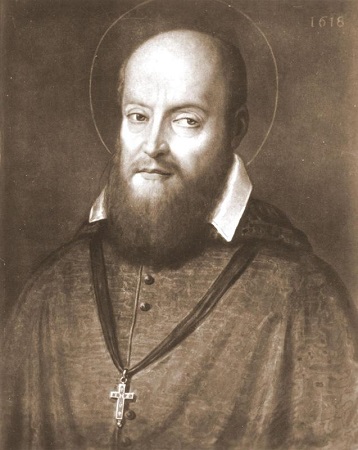
CHAPTER X
Second Meditation - Of the End for which we were Created.
Preparation.
1. Place yourself before God.
2. Ask Him to inspire your heart.
Considerations.
God did not bring you into the world because He had any need of you, useless as you are; but solely that He might show forth His Goodness in you, giving you His Grace and Glory. And to this end He gave you understanding that you might know Him, memory that you might think of Him, a will that you might love Him, imagination that you might realise His mercies, sight that you might behold the marvels of His works, speech that you might praise Him, and so on with all your other faculties.
Being created and placed in the world for this intent, all contrary actions should be shunned and rejected, as also you should avoid as idle and superfluous whatever does not promote it.
Consider how unhappy they are who do not think of all this,--who live as though they were created only to build and plant, to heap up riches and amuse themselves with trifles.
Affections and Resolutions.
Humble yourself in that hitherto you have so little thought upon all this. Alas, my God, of what was I thinking when I did not think of Thee? what did I remember when I forgot Thee? what did I love when I loved Thee not? Alas, when I ought to have been feeding on the truth, I was but filling myself with vanity, and serving the world, which was made to serve me.
Abhor your past life. I renounce ye, O vain thoughts and useless cogitations, frivolous and hateful memories: I renounce all worthless friendships, all unprofitable efforts, and miserably ungrateful self-indulgence, all pitiful compliances.
Turn to God. Thou, my God and Saviour shalt henceforth be the sole object of my thoughts; no more will I give my mind to ideas which are displeasing to Thee. All the days of my life I will dwell upon the greatness of Thy Goodness, so lovingly poured out upon me. Thou shalt be henceforth the delight of my heart, the resting-place of all my affections. From this time forth I will forsake and abhor the vain pleasures and amusements, the empty pursuits which have absorbed my time;--the unprofitable ties which have bound my heart I will loosen henceforth, and to that end I will use such and such remedies.
Conclusion.
Thank God, Who has made you for so gracious an end. Thou hast made me, O Lord, for Thyself, that I may eternally enjoy the immensity of Thy Glory; when shall I be worthy thereof, when shall I know how to bless Thee as I ought?
Offer. O Dearest Lord, I offer Thee all my affections and resolutions, with my whole heart and soul.
Pray. I entreat Thee, O God, that Thou wouldest accept my desires and longings, and give Thy Blessing to my soul, to enable me to fulfil them, through the Merits of Thy Dear Son's Precious Blood shed upon the Cross for me. OUR FATHER, etc. Gather your little spiritual bouquet.
Saints from East and West

December 6 - Saint Nicholas the Wonderworker
During this time of the year, we in the Church are undergoing our physical, mental, and spiritual preparation for the coming feast of the Nativity of our Lord.
Simply because we have entered into a time of preparation does not mean, however, that the cycle of saints and their feasts is somehow interrupted. To the contrary! For during this time we encounter some of the more well-known feasts of the year. Not the least of these is that of Saint Nicholas the Wonder-worker.
So well-known and well-loved is Saint Nicholas that he has, by turns, become an integral part of the preparation and celebration of the Nativity of our Lord. Strangely enough, even among those who have little more knowledge of Christmas than a vague, secular understanding, you will nevertheless be able to discern yet the presence of Saint Nicholas, though perhaps cloaked under different names. (It is, after all, not hard to see how "Saint Nicholas" is linguistically morphed into "Santa Claus.")
This is only right and just, even though we can certainly hope that Saint Nicholas - by whatever odd name that the profiteers might wish to hang on him - might be relieved of the oftentimes materialistic trappings which society would like to lay upon him so that we can see him more clearly. It is precisely in seeing him all the more clearly that you will understand why even those who refuse to see Christ in Christmas will still be loath to give up their attraction to the spirit of the one time Archbishop of Myra. So, dear soul, in prayer let us hear of the earthly life of our dear saint:
As a rule of faith, an image of meekness and a teacher of temperance the Lord revealed thee to thy flock, in the truth of things; therefore, thou didst attain the heights by humility and riches by poverty. O our father and hierarch Nicholas, entreat Christ our God that our souls be saved. - Troparion of the Feast of Saint Nicholas.
Saint Nicholas, the Wonder-worker, Archbishop of Myra in Lycia is famed as a great saint pleasing unto God.
He was born in the city of Patara in the region of Lycia (on the south coast of the Asia Minor peninsula), and was the only son of pious parents Theophanes and Nonna, who had vowed to dedicate him to God.
As the fruit of the prayer of his childless parents, the infant Nicholas from the very day of his birth revealed to people the light of his future glory as a wonder worker. His mother, Nonna, after giving birth was immediately healed from illness. The newborn infant, while still in the baptismal font, stood on his feet three hours, without support from anyone, thereby honoring the Most Holy Trinity. Saint Nicholas from his infancy began a life of fasting, and on Wednesdays and Fridays he would not accept milk from his mother until after his parents had finished their evening prayers.
From his childhood Nicholas thrived on the study of Divine Scripture; by day he would not leave church, and by night he prayed and read books, making himself a worthy dwelling place for the Holy Spirit. Bishop Nicholas of Patara rejoiced at the spiritual success and deep piety of his nephew. He ordained him a reader, and then elevated Nicholas to the priesthood, making him his assistant and entrusting him to instruct the flock.
In serving the Lord the youth was fervent of spirit, and in his proficiency with questions of faith he was like an Elder, who aroused the wonder and deep respect of believers. Constantly at work and vivacious, in unceasing prayer, the priest Nicholas displayed great kind-heartedness towards the flock, and towards the afflicted who came to him for help, and he distributed all his inheritance to the poor.
There was a certain formerly rich inhabitant of Patara, whom Saint Nicholas saved from great sin. The man had three grown daughters, and in desperation he planned to sell their bodies so they would have money for food. The saint, learning of the man’s poverty and of his wicked intention, secretly visited him one night and threw a sack of gold through the window. With the money the man arranged an honorable marriage for his daughter. Saint Nicholas also provided gold for the other daughters, thereby saving the family from falling into spiritual destruction. In bestowing charity, Saint Nicholas always strove to do this secretly and to conceal his good deeds.
The Bishop of Patara decided to go on pilgrimage to the holy places at Jerusalem, and entrusted the guidance of his flock to Saint Nicholas, who fulfilled this obedience carefully and with love. When the bishop returned, Nicholas asked his blessing for a pilgrimage to the Holy Land. Along the way the saint predicted a storm would arise and threaten the ship. Saint Nicholas saw the devil get on the ship, intending to sink it and kill all the passengers. At the entreaty of the despairing pilgrims, he calmed the waves of the sea by his prayers. Through his prayer a certain sailor of the ship, who had fallen from the mast and was mortally injured was also restored to health.
When he reached the ancient city of Jerusalem and came to Golgotha, Saint Nicholas gave thanks to the Savior. He went to all the holy places, worshiping at each one. One night on Mount Sion, the closed doors of the church opened by themselves for the great pilgrim. Going round the holy places connected with the earthly service of the Son of God, Saint Nicholas decided to withdraw into the desert, but he was stopped by a divine voice urging him to return to his native country. He returned to Lycia, and yearning for a life of quietude, the saint entered into the brotherhood of a monastery named Holy Sion, which had been founded by his uncle. But the Lord again indicated another path for him, “Nicholas, this is not the vineyard where you shall bear fruit for Me. Return to the world, and glorify My Name there.” So he left Patara and went to Myra in Lycia.
Upon the death of Archbishop John, Nicholas was chosen as Bishop of Myra after one of the bishops of the Council said that a new archbishop should be revealed by God, not chosen by men. One of the elder bishops had a vision of a radiant Man, Who told him that the one who came to the church that night and was first to enter should be made archbishop. He would be named Nicholas. The bishop went to the church at night to await Nicholas. The saint, always the first to arrive at church, was stopped by the bishop. “What is your name, child?” he asked. God’s chosen one replied, “My name is Nicholas, Master, and I am your servant.”
After his consecration as archbishop, Saint Nicholas remained a great ascetic, appearing to his flock as an image of gentleness, kindness and love for people.
This was particularly precious for the Lycian Church during the persecution of Christians under the emperor Diocletian (284-305). Bishop Nicholas, locked up in prison together with other Christians for refusing to worship idols, sustained them and exhorted them to endure the fetters, punishment and torture. The Lord preserved him unharmed. Upon the accession of Saint Constantine as emperor, Saint Nicholas was restored to his flock, which joyfully received their guide and intercessor.
Despite his great gentleness of spirit and purity of heart, Saint Nicholas was a zealous and ardent warrior of the Church of Christ. Fighting evil spirits, the saint made the rounds of the pagan temples and shrines in the city of Myra and its surroundings, shattering the idols and turning the temples to dust.
In the year 325 Saint Nicholas was a participant in the First Ecumenical Council. This Council proclaimed the Nicean Symbol of Faith, and he stood up against the heretic Arius with the likes of Pope Saint Sylvester, Saint Alexander of Alexandria, Saint Spyridon of Trimythontos, and other Fathers of the Council.
Saint Nicholas, fired with zeal for the Lord, assailed the heretic Arius with his words, and also struck him upon the face. For this reason, he was deprived of the emblems of his episcopal rank and placed under guard. But several of the holy Fathers had the same vision, seeing the Lord Himself and the Mother of God returning to him the Gospel and omophor. The Fathers of the Council agreed that the audacity of the saint was pleasing to God, and restored the saint to the office of bishop.
Having returned to his own diocese, the saint brought it peace and blessings, sowing the word of Truth, uprooting heresy, nourishing his flock with sound doctrine, and also providing food for their bodies.
Even during his life the saint worked many miracles. One of the greatest was the deliverance from death of three men unjustly condemned by the Governor, who had been bribed. The saint boldly went up to the executioner and took his sword, already suspended over the heads of the condemned. The Governor, denounced by Saint Nicholas for his wrong doing, repented and begged for forgiveness.
Witnessing this remarkable event were three military officers, who were sent to Phrygia by the emperor Constantine to put down a rebellion. They did not suspect that soon they would also be compelled to seek the intercession of Saint Nicholas. Evil men slandered them before the emperor, and the officers were sentenced to death. Appearing to Saint Constantine in a dream, Saint Nicholas called on him to overturn the unjust sentence of the military officers.
He worked many other miracles, and struggled many long years at his labor.
Through the prayers of the saint, the city of Myra was rescued from a terrible famine. He appeared to a certain Italian merchant and left him three gold pieces as a pledge of payment. He requested him to sail to Myra and deliver grain there. More than once, the saint saved those drowning in the sea, and provided release from captivity and imprisonment.
Having reached old age, Saint Nicholas peacefully fell asleep in the Lord. His venerable relics were preserved incorrupt in the local cathedral church and flowed with curative myrrh, from which many received healing. In the year 1087, his relics were transferred to the Italian city of Bari, where they rest even now.
The name of the great saint of God, the hierarch and wonder worker Nicholas, a speedy helper and suppliant for all hastening to him, is famed in every corner of the earth, in many lands and among many peoples. It is impossible to list all the grace filled icons of Saint Nicholas, or to enumerate all his miracles.
Saint Nicholas is the patron of travelers, and we pray to him for deliverance from floods, poverty, or any misfortunes. He has promised to help those who remember his parents, Theophanes and Nonna.
In Myra thou was shown to be a hierarch, O Saint Nicholas; for in the fulfillment of Christ's Gospel thou didst today offer up thy life for thy people, and didst save the innocent from death; therefore, thou was sanctified and was revealed to be a great initiate of the grace of God. - Kontakion of the Feast of Saint Nicholas

Advice You Can Bank On
A Catholic Perspective On Finances
December 2022 – Spreading Cheer this Christmas
This is by far my favorite time of year. The regular hustle and bustle of life slows down as we all gather for family meals, drink hot chocolate, and tour the neighborhood looking at all the Christmas lights. We set out our nativity set and decorate the tree in varied Christmas ornaments (I personally can never have enough) and listen to Christmas music to our hearts content.
It’s a time to be cozy and warm, snuggled by the fire enjoying time with family and loved ones. It’s a time to share gifts and make memories for years to come. Above all, it’s a time to rejoice in Our Savior and to make peace rule in our hearts. Colossians 3:14-16 is a beautiful scripture that reminds us of just that, “But above all these things have charity, which is the bond of perfection: And let the peace of Christ rejoice in your hearts, wherein also you are called in one body: and be ye thankful. Let the word of Christ dwell in you abundantly, in all wisdom: teaching and admonishing one another in psalms, hymns, and spiritual canticles, singing in grace in your hearts to God.”
It’s a time to forgive, a time to help others, and a time to reach out and tell someone you love them. It’s in these thoughts that lies that special Christmas magic that conjures up so many memories throughout the years; the family get-togethers, the delicious family recipes, Grandma’s Christmas decorations and cookie making, and the laughter and gaiety associated with love and comfort.
If you’re anything like our family, you probably haven’t started shopping yet. Every single year, I tell myself that I’ll start in October; and if not then, November; and here we are in December and I’m still telling myself the same thing. I am not big on procrastination, but I tend to be really good at it. I could save myself a little stress by heading out earlier and getting things as I go, but, alas, it is just not my style. You’ll also never catch me shopping on Black Friday, but that’s neither here nor there.
One thing I know for sure I won’t be doing is the “buy now pay later” I keep seeing pop up everywhere. For us “old school” people, this is what we’d call layaway, but you get to keep everything you picked out in the store and make “interest free” payments.
Even with the economy in shambles, and prices up by 7.7% from October last year, Americans spent a record $9.12 billion during Black Friday, and $11.3 billion on Cyber Monday, another record. This is just astonishing. There were also a record amount of people shopping in stores and online during the Thanksgiving holiday.
While it is astonishing, it also makes some sense. Nobody knows which commodity will rise or fall, and while we have the money, we “might as well spend it” as we know with inflation that it won’t go as far tomorrow as it did today. We are being “hyped” into thinking we need to get rid of our hard-earned cash. We are sent scurrying to the check out lines thinking “this price is only guaranteed for as long as I have this item in my hands”; tomorrow will be different.
So, while the “lifeline” may feel slightly extended to us in times of not having the cash or the credit for the items we’d like to buy, we should really think twice about the “buy now pay later” schemes. It does mean that if for you to be able to purchase the item, you must use this “credit”, you cannot afford it.
Let’s get back to the Christmas spirit and remind ourselves what this time of year is all about, and not get ourselves into debt while we’re at it.
Every best gift, and every perfect gift, is from above, coming down from the Father of lights, with whom there is no change, nor shadow of alteration. James 1:17

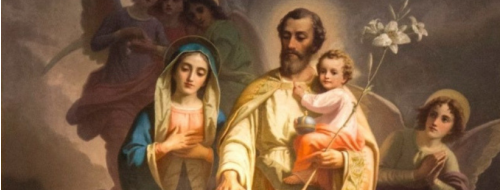 Family Matters
Family Matters
Youth with Purpose of Heart
In Daniel 1 we find the story of an exceptional young man. He had been chosen by the king’s own delegate because there was no blemish found in him; he was well favored, skillful in all wisdom, and cunning in knowledge. He was chosen out of the very best that Babylon had to offer, and Babylon ruled the world. He was chosen to stand in the palace of the most powerful ruler of the world. Power and prestige were within his grasp. Certainly, to those looking on, Daniel was in an enviable position. What more could his heart wish for?
Only one thing stood in the way. A small thing, as most people would see it. Yet there it was. He was to eat of the king’s meat and drink of the same wine which the king drank. The very best were to be his. Yet Daniel knew he could not partake. Exactly why Daniel refused we do not know, but one thing we do know, Daniel stood for what he knew to be right. He understood that the luxuries of Babylon would never be able to fill his life and meet his needs as the God of Israel could, so Daniel purposed in his heart that he would not defile himself with a portion of the king’s meat, nor with the wine which he drank. We need young men and women today who purpose in their hearts not to defile themselves, just as Daniel did.
We live in a world that is pursuing pleasure, money, fame, knowledge, etc. Today, as never before, the opportunity lies before you as a youth to indulge in these things. Circumstances look promising. You have a good job. Money is yours to spend as you choose. You have many friends. The road appears to stretch before you, holding out promises of a good life. What more could your heart wish for?
Only one thing stands in the way. A small thing as many would have you believe. Yet it stands before you. What does God think? What does the Bible say?
Certainly, it is no less important for youth today to take a serious look at what God expects and deserves from them than it was for Daniel many years ago.
In his second letter to Timothy, Paul tells him to “flee youthful lusts.” What are youthful lusts? Lust is defined as “an intense longing or craving for the forbidden.” So we are faced with the question, do youth have a longing for the forbidden? Lust for forbidden things is a problem that has existed on this earth since soon after Adam and Eve were created and certainly has not diminished in the age in which we live. What are some of these things facing youth today?
The world’s music often has a strong appeal to youth. Is there really anything wrong with listening to the same music the world listens to? We must understand that the music one enjoys expresses what is in the heart. It is no secret that the songs this world enjoys are usually extremely immoral. Not only are the lyrics filthy, the music can appeal to the flesh in a very sensual manner. The music alone can bring upon a person feelings of hatred, rebellion, and lust. What concord hath Christ with Belial? Certainly God is looking for youth who purpose in their hearts not to defile themselves with the world’s music.
A second area in which youth may be tempted to compromise is the area of dress. It is amazing how much is conveyed about a person by the clothing they wear. While you may not dress just like the world, how easy is it to choose clothing that is as close to the world’s fads as possible? Do you stop to think what message you will send to the world by the clothing you choose to wear? While clothing alone can never make a person a Christian, it can surely be an indicator which kingdom one is a part of. Many people in the world unashamedly declare that they are a part of the kingdom of darkness by their clothing. Shouldn’t Christians also be willing to bear a clear mark of belonging to God’s kingdom? We need youth who purpose in their hearts not to defile themselves with worldly dress.
Thirdly, a youth may be lured by the world’s leisure and hobbies. We live in a fast-paced, ever changing world, and there seems to be no end to the list of new and exciting things to try. Does it really matter how much time and money we spend on these things? We must understand why the world always needs something new. Outside of Christ a person will always be searching for something to fill the void in his life. It will never be found in worldly entertainment.
Let’s consider what Solomon says. “Rejoice, O young man, in thy youth; and let thy heart cheer thee in the days of thy youth, and walk in the ways of thine heart, and in the sight of thine eyes: but know thou, that for all these things God will bring thee into judgment. Therefore remove sorrow from thy heart, and put away evil from thy flesh: for childhood and youth are vanity. Remember now thy Creator in the days of thy youth, while the evil days come not, nor the years draw nigh, when thou shalt say, I have no pleasure in them” (Ecc 11:9-12:1).
If anyone would know if fulfillment can be found through what this world has to offer, Solomon should. Two things are made very clear in these verses. God will bring us into judgment for how we follow our heart’s desires, and remembering our Creator is important in our youth if we don’t want to live with regrets later in life.
While there may be room for leisure activities, even justifiable activities can quickly be overdone. Consider these figures. In 2011, 13.7 million hunters spent $38.3 billion on equipment, licenses, trips, and more. This averages out to $2,800 per hunter. No figure was given of the value of game that each hunter took home. Will these things bring contentment and satisfaction in old age, or will they bring emptiness?
As God’s chosen people we have a purpose to live for. Remember your Creator TODAY in the days of your youth. God is still searching for those who will choose Him above all the things this world has to offer and who will purpose in their hearts not to defile themselves with the vanity of this world.
“Let us hear the conclusion of the whole matter: Fear God, and keep his commandments: for this is the whole duty of man. For God shall bring every work into judgment, with every secret thing, whether it be good, or whether it be evil” (Ecc 12:13-14).
Lamp and Light Commentary

"Thy word is a lamp to my feet, and a light to my paths." (Psalms 119:105)
Genesis 2: What Are The Needs Of A Wife?
As a husband, it is your responsibility to nurture and cherish your wife, to instruct your wife in the scriptures, (that is what is meant in Ephesians when it says, “cleansing her by the laver of water in the word:”), and to meet her needs. You are to love your wife as you love yourself. (Ephesians 5:22-29, 33.) As you gain insight about your wife’s needs, it is imperative that you take steps to fully meet those needs. As you love your wife as Christ loves the Church, she will be motivated to reverence you. (Ephesians 5:33.)
Following is a description of seven basic needs of a wife, accompanied by projects that can serve as tools to equip you to be a Godly husband, one who loves his wife as Christ loves the Church. “So also ought men to love their wives as their own bodies. He that loveth his wife, loveth himself.” (Ephesians 5:28).
1. A wife needs a husband who demonstrates spiritual leadership.
A husband can lead his wife in her spiritual journey by consistently pursuing a deeper relationship with Christ, honoring Scriptural convictions, making wise decisions, and demonstrating genuine love. As your wife sees you establish Godly standards in your life, she will be motivated to set similar standards in her life and to submit to your leadership.
Maintain Biblical, Catholic Disciplines
How are you striving to grow in the grace and knowledge of the Lord? (See II Peter 3:18.) Review the following list. Which of these activities could be observed in your life? Which of these activities should be observed in your life?
-
Regular reading and study of God’s Word
-
Consistent memorization of Scripture
-
Daily meditation on Scripture
-
Faithfulness in prayer
-
Regular church attendance
-
Fellowship with committed Christians
-
Conversation about spiritual matters
Ask the Lord to show you how to increase in Godliness. As you establish personal goals for spiritual maturity, ask a brother in the Lord to hold you accountable for reaching those goals.
Live by Scriptural Convictions
What evidences of Scriptural convictions do you have or purpose to have? Set aside a period of time in which you can document your convictions and the basis for each one. Here are some examples:
-
Demonstrating love for God by loving your wife, children, and others. (See I John 4:20.)
-
Purposing to make your home a center of Godly learning and living. (See Psalm 101.)
-
Avoiding actions or activities that might cause your wife, children, or others to stumble. (See Romans 14.)
It is not enough to simply identify Scriptural convictions; you must be determined to make decisions that are guided by those convictions and standards. Be an example of obedience and faithfulness to your wife as you uphold Godly convictions in your family.
Do these obstacles hinder your consistent obedience to Godly standards?
-
Wrong priorities
-
Pride
-
Guilt from past failures
-
Lack of wisdom
-
Losing your temper
-
Bondage to enslaving habits
-
Influence by, and attention to, television
-
Companionship with wrong friends
Determine steps to overcome obstacles and walk in the victory that has been purchased for you by the blood of the Lord Jesus Christ.
Demonstrate Genuine Love
Your wife needs to see a demonstration of genuine love in everything you say and do. Let the prayer of the Apostle Paul to the church in Philippi be your guide: “I pray, that your love may abound yet more and more in knowledge and in all judgment; that ye may approve things that are excellent; that ye may be sincere and without offense till the day of Christ; being filled with the fruits of righteousness, which are by Jesus Christ, unto the glory and praise of God” (Philippians 1:9-11).
List the ways that you demonstrate love to your wife. Then ask her to explain which ones do or do not express love to her, and why.
2. A wife needs to know she is meeting her husband’s vital needs.
A wife finds security and purpose in knowing that she is meeting needs in her husband’s life that no other woman can meet. She needs to know that she is precious in his eyes. (See Genesis 2:18, 21-23.)
The scourge of a woman is jealousy—the fear of being displaced. Your wife needs to be confident not only that you love her but that you also desire her companionship and sincerely need her assistance.
Share Your Needs
Your wife needs to know that as your helpmate, she “completes” you. (See Genesis 1:21-24.) To give your wife the satisfaction of meeting your needs, explain your needs with openness and clarity and share what she can do to meet those needs and accomplish your top priorities for the family.
It is human nature for a husband to not want to share his needs with his wife, because he doesn’t want to risk losing her admiration. However, you will win your wife’s love more effectively if you honestly share both your failures and your successes.
Thoughtfully Praise Your Wife
Is your wife now meeting needs in your life that no other woman can meet? Compile a list, share your insights with your wife, and express gratefulness to her for meeting those exclusive needs. Here are a few examples to consider as you compile your own unique list:
-
She can give you the joy of a physical relationship without guilt. (See Proverbs 5:19-20.)
-
She is a safeguard to your hasty decisions because of her need for security and consistency.
-
She discerns the real needs of the children.
3. A wife needs a husband who cherishes her.
Cherish means “to protect and love (a person)” and “to care for tenderly; nurture.” A wife needs reassurance that her husband cherishes her, valuing her above all other people, possessions, or activities. Your wife needs to know that your delight in her goes beyond the things she can do for you. If she does not feel cherished, she becomes insecure.
List the character qualities and personality traits that first attracted you to your wife. You may want to write this list in your prayer journal, as a reminder to intercede for your wife in regard to her weaknesses and as a reminder of reasons you “rejoice with the wife of thy youth” (Proverbs 5:18).
Deepen Your Wife’s Security Through Acceptance
A wife needs to know that her husband accepts her “unchangeables,” especially the ones she herself has difficulty accepting. You have a unique opportunity to love your wife by helping her learn the Scriptural basis of self-acceptance.
List any unchangeable physical features, family circumstances, and past experiences that your wife finds difficult to accept, such as a physical handicap, poverty, or divorced parents. Ask the Lord to show you how each of these unchangeables has produced or strengthened in your wife character qualities or attitudes that you admire. Share these insights with your wife and help her understand ways that God has benefited her life through those situations that were, or are, beyond her control.
4. A wife needs a husband who protects her.
A wife wants her husband to be alert to her spiritual, mental, emotional, and physical strengths and weaknesses and to lovingly provide wise direction and security.
Scripture instructs husbands to dwell with their wives “according to knowledge,” giving honor unto them “as unto the weaker vessel.” (See I Peter 3:7.) A wife needs to be well understood, so that her husband can discern when to be firm and when to be lenient.
Establish Appropriate Boundaries
Your wife especially needs your protection in the form of establishing boundaries so that she will fulfill her responsibilities within appropriate limitations. Work with your wife to discern her top priorities and ensure that she has the time and resources needed to fulfill her responsibilities.
Does your wife need your protection through the loving provision of boundaries in any of the following areas?
-
Lack of sleep
-
Unfinished projects
-
Inappropriate clothing
-
Poor eating habits
-
Neglecting personal appearance
-
Tardiness
-
Destructive self-criticism
-
Volunteering
5. A wife needs to have intimate communication with her husband.
A wife yearns for intimate communication with her husband. Intimate conversation is a key factor in maintaining oneness of spirit in your marriage. Your wife needs to know that she can safely share her deepest emotions with you.
You would be wise to establish a regular time to invest in your wife by giving her your undivided attention. Your investment will earn an amazing return!
Set Aside Time for Talking Together
Have you and your wife established a regular time to have uninterrupted, intimate conversation? If not, make it a priority to discuss that goal with your wife within the week. (Your enthusiasm about the idea will bless your wife, but you may have to persuade her to make the commitment to give you her undivided attention, especially if she tends to be a diligent wife and mother.) Persevere. It’s worth it.
Consider places your wife would enjoy going in order to have special time with you:
-
Breakfast at ________________.
-
Lunch at ___________________.
-
At home during ______________.
Acknowledge distractions that frequently hinder intimate conversation when you and your wife are together:
-
Having your mind on other things
-
Phone calls
-
Talking to friends you meet
-
Loud music or other irritating noises
-
Interruptions by the children
Ask the Lord to make you alert and sensitive to distractions, and purpose to avoid them or eliminate them, whichever would be most appropriate.
Address Fears and Concerns
Most wives have deep fears and emotions that they have never shared with their husbands. It is your responsibility to lovingly and patiently help your wife identify and verbalize her fears and gain wisdom from God to resolve them.
During your times of intimate conversation, consider choosing one of the areas listed below and asking her how she feels about it. After listening attentively to her initial response, ask, “In addition to that, do you have any other feelings about it?”
-
Insecurity if her husband dies
-
Growing old
-
Becoming unattractive to her husband
-
Poor health
-
Failure as a wife and mother
-
Being displaced by another woman
-
Husband losing his job
-
Future of the children
As your wife confides in you, admitting her fears, ask the Lord to give you wisdom to help her resolve each one, through Christ.
6. A wife needs a husband who honors her.
A wife needs to know that her husband honors her. You can honor your wife in many ways, such as being attentive during conversation, using good manners, and praising her.
Practice Good Manners
Review the following list of good manners. If you are not practicing some of them, make a conscious effort to practice the habits that would particularly bless your wife.
-
Making her aware of your schedule and priorities
-
Being punctual
-
Refraining from using crude language
-
Personal cleanliness, neatness, and grooming
-
Lifting heavy objects for her
-
Seating her at the table
-
Putting your dirty laundry in its proper place
-
Helping her on and off with her coat
Be Attentive
Make a commitment to be attentive to your wife. For example, when she asks you a question, stop what you are doing, look at her, answer her question (even the little ones), and communicate your love for her through your tone of voice as well as your facial expression.
7. A wife needs a husband who invests in her life.
A wife needs her husband’s support and encouragement to learn new skills and broaden her field of interests. Your wife needs to know that you do not take her for granted and that you are eager to invest in her life spiritually, emotionally, physically, and financially.
Offer Support and Encouragement
Your wife needs your active leadership in your relationship. Consider the suggestions below, and invest in your wife’s life as the Holy Spirit shows you specific ways that you can support and encourage her.
-
Provide opportunities for her to develop her gifts, skills, and talents. This may involve opportunities within your family, your church, or your community. Be sensitive to your wife’s desire for more training, if she would like to pursue new areas of service.
-
Together, define the responsibilities that each of you has in your family.
-
Visualize how you can add new dimensions to her responsibilities so that she can recognize the future value, and eternal value, of what she is presently doing.
Seek to Meet Your Wife’s Needs
When you entered the covenant of marriage with your wife, you made a lifelong commitment to love her, which includes meeting her needs as your wife. Such a commitment demands faithfulness, endurance, and love that is willing to make sacrifices. Rely on God’s grace and wisdom as you seek to become a Godly husband who understands his wife’s needs and successfully fulfills his responsibilities.


Books to feed your faith!
Spiritual Maxims
$7.50
"Pere Grou's great theme in the Spiritual Maxims is his insistence on the following of the spirit of Christ as opposed to what he calls the natural spirit, or the spirit of private judgment. Prayer for him is contemplative prayer, or the prayer of the interior way. Not that he despised formal meditation by any means, but he regarded it always as a stepping-stone towards a higher form of prayer, the intimate prayer of the spirit. His great aim and desire was to urge and encourage souls not to be afraid, but to persevere in a wholehearted gift of themselves to God, and in a faithful surrender to the guidance of the Holy Ghost." Translator A Monk Of Parkminster St. Alphonsus writes: “a single bad book will be sufficient to cause the destruction of a monastery.” Pope Pius XII wrote in 1947 at the beatification of Blessed Maria Goretti: “There rises to Our lips the cry of the Saviour: 'Woe to the world because of scandals!' (Matthew 18:7). Woe to those who consciously and deliberately spread corruption-in novels, newspapers, magazines, theaters, films, in a world of immodesty!” We at St. Pius X Press are calling for a crusade of good books. We want to restore 1,000 old Catholic books to the market. We ask for your assistance and prayers. This book is a photographic reprint of the original The original has been inspected and many imperfections in the existing copy have been corrected. At Saint Pius X Press our goal is to remain faithful to the original in both photographic reproductions and in textual reproductions that are reprinted. Photographic reproductions are given a page by page inspection, whereas textual reproductions are proofread to correct any errors in reproduction.
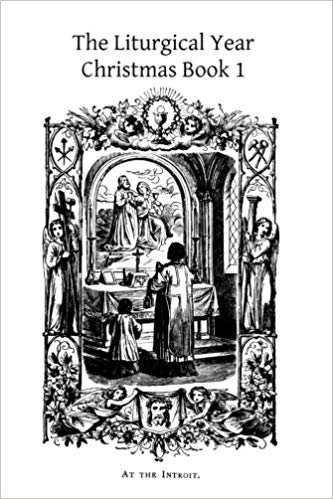
The Liturgical Year: Christmas Book 1 (Volume 1)
$19.95
One of a fifteen volume set, which is being brought back into print for the edification of the Faithful. Anyone who wishes to appreciate the timeless Tridentine Mass and liturgy will find this set a valuable aid in that endeavor. Dom Gueranger has produced a most excellent work, which began the liturgical movement. We pray that this set of books will bring many more to a true appreciation of the Latin Mass and the Divine Office of the Catholic Church. At one time, under the impulse of that Spirit, which animated the admirable Psalmist and the Prophets, she takes the subject of her canticles from the Books of the Old Testament; at another, showing herself to be the daughter and sister of the holy Apostles, she intones the canticles written in the Books of the New Covenant; and finally, remembering that she, too, has had given to her the trumpet and harp, she at times gives way to the Spirit which animates her, and sings her own new canticle. From these three sources comes the divine element which we call the Liturgy. The Prayer of the Church is, therefore, the most pleasing to the ear and heart of God, and therefore the most efficacious of all prayers. Happy, then, is he who prays with the Church, and unites his own petitions with those of this Spouse, who is so dear to her Lord, that he gives her all she asks. It was for this reason that our Blessed Saviour taught us to say our Father, and not my Father; give us, forgive us, deliver us, and not give me, forgive me, deliver me. Hence, we find that, for upwards of a thousand years, the Church, who prays in her temples seven times in the day, and once again during the night, did not pray alone. The people kept her company, and fed themselves with delight on the manna which is hidden under the words and mysteries of the divine Liturgy. Thus initiated into the sacred Cycle of the mysteries of the Christian year, the faithful, attentive to the teachings of the Spirit, came to know the secrets of eternal life ; and, without any further preparation, a Christian was not unfrequently chosen by the Bishops to be a Priest, or even a Bishop, that he might go and pour out on the people the treasures of wisdom and love, which he had drunk in at the very fountain-head. For whilst Prayer said in union with the Church is the light of the understanding, it is the fire of divine love for the heart. The Christian soul neither needs nor wishes to avoid the company of the Church, when she would converse with God, and praise his greatness and his mercy. She knows that the companyof the Spouse of Christ could not be a distraction to her. Is not the soul herself a part of this Church, which is the Spouse? Has not Jesus Christ said: Father, may they be one, as we also are one? and, when many are gathered in his name, does not this same Saviour assure us that he is in the midst of them? The soul, therefore, may converse freely with her God, who tells her that he is so near her; she may sing praise, as David did, in the sight of the Angels, whose eternal prayer blends with the prayer which the Church utters in time.
Jesus and Mary: or Catholic Hymns for Singing and Reading
$14.95
The Author has had a double end in view in the composition of them; first, to furnish some simple and original hymns for singing; secondly, to provide English Catholics with a hymn-book for reading, in the simplest and least involved metres: and both these objects have not unfrequently required considerable sacrifice in a literary point of view. When God raised up our dear and blessed Father St. Philip, St. Ignatius, and St. Theresa, and gave them to His Church, just as the heresy of Protestantism was beginning to devastate the world, those three Saints seem to have had distinct departments assigned to them. All of them, each in a different way, met the subjectivity, the self-introverted habit of mind, which was then coming uppermost, and thus rendered modern Catholicism the great object of our study and the model for our imitation, as being primarily fashioned, and that by the hands of Saints, for the welfare of these latter ages. St. Theresa represents the common sense, the discreet enthusiasm, of devotion and the interior life, which distinguishes Catholic asceticism and the mysticism of the Saints from the fanatical vagaries of the heretics. St. Ignatius, without debarring his children from any field of labour, took in a special way the education of Europe and the evangelization of distant lands for his department, and represented in the Church the principle of faith. St. Philip devised a changeful variety of spiritual exercises and recreations, which gathered round him the art and literature, as well as the piety of Rome, and was eminently qualified to meet the increased appetite for the Word of God, for services in the vernacular, for hymn-singing and prayer-meetings. Sanctity in the world, perfection at home, high attainments in common earthly callings-such was the principal end of his apostolate. He met the gloom and sourness and ungainly stiffness of the puritan element of Protestantism by cheerfulness and playful manners, which he ensured, not in any human way, but by leaving to his children the frequentation of the Sacraments as the chief subject of their preaching and their chief counsel in the spiritual direction of others; and he represented in the Church the principle of love. St. Ignatius was the St. Dominic, St. Philip the St. Francis of his age. What was mediaeval and suited to the mediaeval state of things passed away, and there appeared at the Chiesa Nuova and the Gesu the less poetical, but thoroughly practical element of modern times, the common sense which works and wears so well in this prosaic world of ours. It was natural then that an English son of St. Philip should feel the want of a collection of English Catholic hymns fitted for singing. The few in the Garden of the Soul were all that were at hand, and of course they were not numerous enough to furnish the requisite variety. As to translations, they do not express Saxon thoughts and feelings, and consequently the poor do not seem to take to them. The domestic wants of the Oratory, too, kept alive the feeling that something of the sort was needed; though at the same time the Author's ignorance of music appeared in some measure to disqualify him for the work of supplying the defect. Eleven, however, of the hymns were written, most of them, for particular tunes and on particular occasions, and became very popular with a country congregation. They were afterwards printed for the schools at St. Wilfrid's, and the very numerous applications to the printer for them seemed to show that, in spite of very glaring literary defects, such as careless grammar and slipshod metre, people were anxious to have Catholic. hymns of any sort. The MS. of the present volume was submitted to a musical friend, who replied that certain verses of all or nearly all the hymns would do for singing: and this encouragement has led to the publication of the volume.
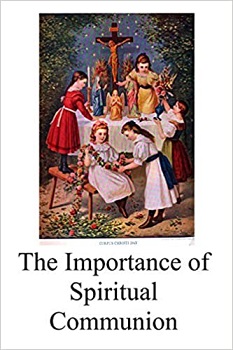
The Importance of Spiritual Communion
Kindle $2.99 / Paperback $5.99
If we cannot receive Holy Communion actually, then let us do so spiritually. These prayers and instructions have been gathered from the Saints and other venerated spiritual writers. Spiritual Communion has been a part of the spiritual life for decades. Growing up I was instructed to make a Spiritual Communion, when I could not go to Communion such as when I assisted at a second Mass. The same is true if one finds oneself at Mass, but not fasting. There are times coming, when it will be difficult, if not impossible to assist at the Holy Sacrifice of the Mass. We should be prepared for such times.
For More Good Traditional Catholic Books:

Steamed Christmas Pudding
The Old Favourite!
Prep: 20 minutes
Cook: 3 hours
Ready In: 3 hours 20 minutes
It simply is not the Christmas season without the Christmas Pudding. Ever a welcome sight upon your family's dinnertable, there's truly none like it. Grandfather's favourite! Uncle Vigo always attested that a good shot of brandy over each serving added the right festive touch, but we leave that to your discretion.
Ingredients
1 1/2 cups self-rising flour
1 cup white sugar
1 teaspoon ground cinnamon
2 eggs, beaten
1/4 cup melted butter
1/2 cup prepared mincemeat pie filling
1/2 cup whole cranberry sauce
1/2 cup pumpkin puree
1 (8 ounce) container sour cream
1 (8 ounce) package cream cheese
1/3 cup confectioners' sugar
Directions
Grease one 2-quart lidded pudding mold. Sift together the flour, sugar and cinnamon; set aside.
In a large bowl, mix together the eggs, butter, mincemeat, cranberry sauce and pumpkin. Add to flour mixture and mix until smooth; pour into pudding mold.
Place a rack in the bottom of a large pot, over medium heat, and fill 1/2 way up with boiling water. Place the pudding on the rack. Steam for 2 1/2 hours.
Check the pan occasionally and add more water if needed. Check for doneness by inserting a toothpick in the center. When firm, place the pudding mold on a rack outside of the water for 10 minutes and unmold.
Prepare a sauce by blending together the sour cream, cream cheese and confectioners sugar. Spoon dollops over warm pudding and serve.
Baker's Clay for making Jesse Tree and Christmas Tree Ornaments
4 cups flour
1 cup salt
1 1/4 - 1 1/2 cup water
food coloring -- optional. Add to water, or keep plain and paint after baking
beaten egg -- optional for use with dough made without food coloring
shellac
wire hooks, bent wire, ribbons, etc., for hanging
Add food coloring to water if desired. Mix flour, salt and water together and knead until smooth. Roll out and cut with cookie cutters, shape by cutting out freehand, or cut using cardboard templates. "Glue" two pieces together by scratching the surface of one piece, brushing the area to be attached with water, and pressing the second piece onto it. Smooth over cracks with moist dough or water.
Make a hole in each piece through and thread through a hook or bent wire. These can be left in as the pieces are baking.
Bake at 300 degrees until set (1/2 hr to 1 hr). If you want a golden color to the pieces that aren't made from colored dough, brush with beaten egg when they are almost done baking and are dry (a golden color would be good for golden skin tones. For a darker golden color, repeat this process a few times).
If desired, paint totally cooled pieces with acrylic paint.
Seal all types of ornaments in shellac on both sides and let dry thoroughly.
Store ornaments in an airtight tin; keep very dry. They should last for years.
To make African skin tones and wooden-colored objects, use this recipe:
1 cup Cinnamon
1 TBSP Cloves
1 TBSP Nutmeg
3/4 cup Applesauce
2 TBSP White glue
Mix spices. Add applesauce and glue, then stir to mix, working mixture with hands for 2-3 minutes. Divide into 4 parts. Roll each to 1/4" thickness, cut into shapes, make hole for hanging as above. Place on wire rack and let dry at room temperature for about two days, turning once at the end of the first day.
Video sermons and instructions: Timeless timely truths for living the Faith
Saint Stephen 2010 Sermon
Gaudete Sunday 2012
The Spiritual Life Simplified
Sacred Moments - A Servant Who Blesses
Sacred Moments
Vatican In Exile Podcasts
Family Theater
Family Theater was a program created to promote family unity and each week saw a drama illustrating the importance of family life and prayer. The main reason for the success of this series was undoubtedly due to the numerous Hollywood stars that participated.
Cast: Bing Crosby, Gary Cooper, James Stewart, Gregory Peck, Shirley Temple Director: Fred MacKaye, Dave Young, Joseph Mansfield, Richard Sanville, Jaime del Valle, Mel Williamson, Robert O’Sullivan, John Kelley Producer: Father Patrick Peyton, Bob Longenecker Host: Father Patrick Peyton Writer: True Boardman , Father Patrick Peyton Announcer:Tony LaFrano
Ranger Bill
Ranger Bill was a Christian radio adventure serial, and aimed at the younger generation. This turned out to be one of the most successful radio broadcasts, and with an amazing longevity of over twelve years. The very first fifteen minute episode was aired on October 2, 1950, but this later changed to a half hour episode, beginning May 14, 1954 and running right through until 1962.
Catechism Corner
Catechizing with a fresh perspective. Using the Holy Scriptures and the Catechism of the Council of Trent as foundational bases.
Lamp and Light Bible Study
Lamp and Light Bible Study is not a ‘theological’ study but a ‘life application’ study.
Our in house Priest will show that every single book of the Bible is interesting and has a message for us today. It deals with key aspects of the Christian life and speaks more to the heart than to the head.
Sunday Sermon
The Ave Maria Hour
The Ave Maria Hour first aired on April 26, 1935, on radio station WOR. It was presented by the Franciscan Friars of the Atonement to help the humanitarian work of St. Christopher’s Inn, and during that first show, Servant of God Father Paul of Graymoor talked about the charity involved in caring for the men of the Inn. In 1937, it was estimated that nearly 1 million listeners were tuning in each week, which resulted in large pilgrimages coming to Graymoor.
The popular Ave Maria Hour continued until 1969, encouraging and entertaining listeners. It was heard on more than 350 stations as well as on the Armed Forces Radio Service. Recorded in a studio in New York City and on the grounds of Graymoor, these dramatizations of the lives of the saints, stories from the Gospel, and inspiring accounts of faith received many awards for religious radio programs sponsored by the American Exhibition of Educational Radio and Television programs of Ohio State University. It received the Golden Bell Award in 1959, presented by Ed Sullivan on live television.
The Bible In Living Sound
THE BIBLE IN LIVING SOUND, the original dramatized audio Bible stories . . . really gets kids excited about the Bible! These 450 spiritually enthralling stories, re-enacted with music and lively sound effects, leave impressions of lasting beauty and wonder, putting the listener in the Red Sea at the crossing, beside David as he confronts Goliath, with Mary and Joseph in the stable, and there at the foot of the Cross. These stunning dramatizations captivate listeners of all ages as they are enriched by visualizing the values taught in God's Word. Listeners want to hear these audio Bible stories again and again.
Truths From Genesis
God Didn't Use the Big Bang
When Christians claim God could have used the big bang to create the universe, we know that can't be so as that idea contradicts God's Word. The supposed order of events in the big bang model clearly contradict what God's Word tells us about the formation of the universe, the earth, and then all the other heavenly bodies. It also contradicts what God's Word tells us about the initial conditions of the earth.
Even God's Word in the New Testament confirms the earth was originally covered in water. In 2 Peter 3:3-10, Peter tells us that there will be a time when many people will make fun of those of us who believe that Jesus Christ, the One who created the world and came and died on a Cross, will be coming back one day to judge the world.
Peter informs us that these people that scoff will not believe that God made the earth and that the earth was formed out of water and through water. This seems to say that the original substance from which god made the bodies in the universe was water. And it's very obvious from this passage that the earth was not a hot molten blob to start with as those who believe in the big bang claim.
Now look at 2 Peter 3:10. Here Peter states that these same people who scoff at us will not believe that this earth is going to be judged in the future by fire. Consider Peter's description, that then the heavens will pass away with a roar, and the heavenly bodies will be burned up and dissolved, and the earth and the works that are done on it will be exposed.
Actually, we could say that a big bang did not make the universe, but a very different sort of big bang is going to end it when God judges this earth by fire, and then makes a new heaven and earth. For those of us who are Christians, that is something we look forward to.
Let me ask a question here. Has God judged the earth at any time in the past? He certainly did, but not by fire; it was with water at the time of Noah. We will write about this later on, when we get to the event of the worldwide flood of Noah's day in Genesis 6-9. But think about this: the water God made when He created the earth, was the same water that He used later to judge the earth. And this is the same water we swim in down at the beach! Think about that the next time you take a swim.
Darkness Was Over the Deep
Now look at Genesis 1:2 again...and darkness was over the face of the deep. When God first created the earth, there was no light-it was dark. Remember, there was no sun or moon. There was no stars. There was just space, and the earth which was like a watery blob and it was dark. We can't even imagine how dark it was.
Next month we will look at Genesis 1:3

Catechism Catch-Up
Why You Can Be Absolutely Sure That Paul Believed in the Eucharist
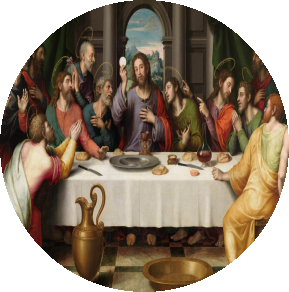
St. Paul, an apostle, wrote vividly about the Real Presence of Christ in the Eucharist.
Paul talks about the Eucharist in 1 Corinthians 10:16-21 and 1 Corinthians 11:27-30. These passages show that Paul was Catholic in his belief.
Participating in what is real
Let’s start with 1 Corinthians 10:16-21. Paul makes it clear that when we partake of the Eucharist we partake of the body and blood of Jesus;
The chalice of benediction, which we bless, is it not the communion of the blood of Christ? And the bread, which we break, is it not the partaking of the body of the Lord? (v.16).
How could we be sharing in the body and blood of Jesus unless his body and blood were present? Paul underscores this truth in the subsequent verses when he draws a parallel between the Eucharist and pagan sacrifices:
[What] they sacrifice to devils, and not to God. And I would not that you should be made partakers with devils.…you cannot be partakers of the table of the Lord, and of the table of devils. (v.20-21).
If communing with demons in pagan sacrifices implies that demons are really present, then communing with the body and blood of Jesus in the Eucharist implies that his body and blood are really present.
Paul’s reference to the “table of the Lord” (v.21) also implies the real presence of Jesus in the Eucharist. If pagans offer a real victim (not a symbol) on the “table of devils,” then how much more do Christians offer a real victim, Jesus, on the “table of the Lord”?
The symbolism of bread
There are those who may object that Paul refers to the Eucharist as “bread” and therefore can’t mean for the Eucharist literally to be Jesus’ body. But, just because Paul describes the Eucharist according to how it appears to his senses, it doesn’t follow the Eucharist is not Jesus.
Biblical writers commonly refer to things according to their appearance. Scholars call this phenomenological language. For example, angels are referred to as men (see Genesis 18:2, Tobit 5:2-4), and death is referred to as sleep (see Daniel 12:2). When Paul refers to the Eucharist as “bread” he is similarly using phenomenological language.
Furthermore, as the late Jesuit Cornelius à Lapide points out in his commentary on St. Paul’s first letter to the Corinthians, bread is a Hebraism for food:
I reply that bread, by a Hebraism, stands for any food (2 Kings 2:22). So Christ is called manna (John 6:31), and bread (John 6:41). The reason is that bread is the common and necessary food of all.
One should also remember that Catholics don’t deny that the Eucharist has a “symbolic” value. The Catechism of the Counsel of Trent explains that the sacraments confer the grace they signify. The visible sign of bread signifies Jesus as our true food: “For my flesh is meat indeed: and my blood is drink indeed.” (John 6:55). But the bread doesn’t just signify Jesus: it becomes Jesus. Therefore, Paul’s description of the Eucharist as “bread” doesn’t negate Christ’s real presence in the Eucharist.
Furthermore, three times in 1 Corinthians 11:27-30 Paul uses language that shows he believes the Eucharist is literally Jesus and not a mere symbol.
The “guilt of blood”
The first example is Paul’s use of homicidal language in his instruction on receiving the Eucharist worthily:
Whosoever shall eat this bread, or drink the chalice of the Lord unworthily, shall be guilty of the body and of the blood of the Lord. (v.27).
The Greek text—enochos estai tou somatos kai tou haimatos tou kyriou—translates “will be guilty of the body and blood of the Lord.”
The phrase “guilty of blood” is a figure of speech that connotes murder. This language appears in the Old Testament, when God pronounces judgment on the inhabitants of Mount Seir (Edom): "Therefore as I live, saith the Lord God, I will deliver thee up to blood, and blood shall pursue thee: and whereas thou hast hated blood, blood shall pursue thee." In other words, "you are guilty of blood, therefore blood shall pursue you” (Ezekiel 35:6). In Numbers 35:27 the phrase is also used, but in the negative for those who are not guilty of murder. In the New Testament, Pontius Pilate declares himself “innocent” of Jesus’ blood (Matthew 27:24), meaning he is not guilty of murder. We even use this language today when we say someone has “blood on his hands.”
To incur the “guilt of blood” the victim has to be present. If someone fires a gun at a picture of the president of the United States, that person wouldn’t be guilty of the president’s blood. He would only be attacking a symbol. But if that person assassinates the president, then that person would be guilty of the president’s blood.
Paul says that we’re guilty of Jesus’ blood if we partake of the Eucharist unworthily. The only way to make sense of this belief is that Paul believed the Eucharist is literally Jesus.
Eternal and temporal consequences
Paul taught that eating the Eucharist unworthily has both eternal and temporal consequences, and these constitute our second example.
Regarding the eternal consequences, he writes, “For he that eateth and drinketh unworthily, eateth and drinketh judgment to himself, not discerning the body of the Lord.” (v.29). Elsewhere Paul uses the Greek word for “judgment,” krima, to connote damnation:
“Having damnation [Greek: krima] because they have made void their first faith” (1 Timothy 5:12).
“Therefore he that resisteth the power, resisteth the ordinance of God.And they that resist, purchase to themselves damnation [Greek: krima]” (Romans 13:2).
Regarding the temporal consequences, he writes, “Therefore are there many infirm and weak among you, and many sleep.” (1 Corinthians 11:30).
Why would Paul believe that sickness, death, and damnation result from an unworthy reception of the Eucharist if it were merely a symbol? Such consequences are unintelligible if the Eucharist is a mere symbol.
A peace offering of real flesh
The third example is the parallel Paul draws with the peace offering described in Leviticus:
If any one that is defiled shall eat of the flesh of the sacrifice of peace offerings, which is offered to the Lord, he shall be cut off from his people. (Leviticus 7:20).
Notice that both Leviticus and Paul speak of eating unworthily and incurring a severe consequence. But in Leviticus one eats the flesh of the offering and in Paul one eats the Eucharist.
Leviticus |
Paul |
| Eat flesh of peace offering | Eat Eucharist |
| Eat unworthily | Eat unworthily |
| Being cut off from God’s people | Damnation |
These parallels seem to suggest that Paul understands the Eucharist to be a real flesh offering just like the real flesh offering in Leviticus. For Paul, to partake of the Eucharist is to partake of the flesh of the true peace offering—namely, Jesus.
You can be assured that if Paul were here today they would see him in the Communion line approaching the altar to receive Jesus in the Eucharist.
Five Different Types Of Fools

In the Old Testament, the word fool is actually a translation of five different Hebrew words that reflect subtle differences in “types” of fools. Unfortunately, the English translation makes it more difficult to identify the characteristics of five types of fools, but with a careful search of Scripture these differences can be distinguished.
Wise counselors—parents, pastors, spiritual directors, friends, spouses—need to understand the progression of rebellion that is reflected in the Bible’s description of fools. If you learn to perceive the characteristics of a simple fool, silly fool, sensual fool, scorning fool, and steadfast fool, you will be equipped to identify and respond to such fools with wisdom and discernment.
The Simple Fool
The Hebrew word for “simple [fool]” is pethîy (peth-EE). The root word from which it is derived, pâthâh, implies extreme vulnerability, literally meaning “to be opened up.” The simple fool opens his mind to any passing thought and opens his arms to any passing stranger. In other words, he lacks discernment. He has an over-simplified view of life and fails to recognize the cause-and-effect sequences that affect every area of life. (See Proverbs 22:3.)
Because the simple fool is not discerning, he is easily captivated by all kinds of enticements and deceptions. He is dangerously immature, extremely gullible, and intensely curious. In the absence of instruction and consistent discipline, the simple fool will naturally become more foolish. A simple fool is especially vulnerable to seduction, lacking an understanding of the irreversible consequences of moral failure. (See Proverbs 7:6–7.)
The Proverbs provide instruction for the simple fool: “The proverbs of Solomon the son of David, king of Israel … give subtlety to the simple [pethîy], to the young man knowledge and understanding” (Proverbs 1:4).
Scorning fools will seek out simple fools and try to become their heroes. Therefore, to protect simple fools from the destructive influence of the scorning fool, it is critical to bring swift correction to scorning fools. “Smite a scorner, and the simple [pethîy] will beware …” (Proverbs 19:25).
The Silly Fool
The Hebrew word that refers to a “silly fool” is ’eviyl (ev-EEL). Its definition is “to be perverse, silly.” The mouth of a silly fool often gets him in trouble. “Wise men lay up knowledge: but the mouth of the foolish [’eviyl] is near destruction” (Proverbs 10:14; see also Proverbs 20:3). When things go wrong for a silly fool, he becomes angry, resulting in more damage. “A stone is heavy, and the sand weighty; but the anger of a fool [’eviyl] heavier than them both” (Proverbs 27:3).
A silly fool believes that his own way of thinking is right (see Proverbs 12:15), so much so that he reacts to instruction when it is offered: “The fear of the Lord is the beginning of knowledge: but fools [’eviyl] despise wisdom and instruction” (Proverbs 1:7; see also Proverbs 10:21). Argument, persuasion, and advice from well-meaning friends fail to convince silly fools of error. Proper correction by authorities, which publicly shames the silly fool, will more often be effective in helping him change his ways. (See Proverbs 29:9 and Proverbs 7:22.)
The Sensual Fool
One who rejects the correction of parents or other authorities will become a sensual fool. This type of fool is identified in Scripture with the Hebrew word kecîyl (kess-EEL), which means “fat, i.e. stupid or silly.” The word denotes a person who seems determined to make wrong choices. He does not have a mental deficiency, but rather rejects the wisdom of God.
The sensual fool’s focus is on that which brings him immediate pleasure. He glories in that of which he should be ashamed. “It is as sport to a fool [kecîyl] to do mischief … ” (Proverbs 10:23; see also Proverbs 13:19–20).
A sensual fool is unreasonable. As a silly fool, his mouth got him into trouble. Now, as a sensual fool, his mouth gets him into more trouble. “A fool’s [kecîyl] lips enter into contention, and his mouth calleth for strokes [blows]. A fool’s [kecîyl] mouth is his destruction, and his lips are the snare of his soul” (Proverbs 18:6–7).
Scripture gives more warnings about the sensual fool than about any other type of fool. His motives and methods are subtle. He should be avoided, because those who follow him will be led astray. “… A companion of fools [kecîyl] shall be destroyed” (Proverbs 13:20). Severe punishment is prescribed for the sensual fool: “A whip for the horse, a bridle for the ass, and a rod for the fool’s [kecîyl] back” (Proverbs 26:3, see also Proverbs 19:29).
The Scorning Fool
The Hebrew word that denotes a “scorning fool” is lûwts (LOOTS). It means “to make mouths at, i.e. to scoff.” The scorning fool’s facial expressions communicate the disdain and contempt he has in his heart toward his authorities, including parents, civil authorities, and God.
This type of fool not only has rejected truth; he also has embraced that which is abominable to God. Psalm 1:1 describes the progression of foolishness, referring to a man who first walks “in the counsel of the ungodly,” then stands “in the way of sinners,” and finally sits “in the seat of the scornful [lûwts].” The scorning fool utterly detests people and ideas that contradict his false thinking, and he expresses his scorn through derisive attitudes, behavior, and speech.
The scorning fool turns a deaf ear to rebuke: “A wise son heareth his father’s instruction: but a scorner [lûwts] heareth not rebuke” (Proverbs 13:1; see also Proverbs 14:6). Those who attempt to lead the scorning fool away from the path of destruction that he seems determined to follow will suffer his wrath. “A scorner loveth not one that reproveth him: neither will he go unto the wise” (Proverbs 15:12). “He that reproveth a scorner [lûwts] getteth to himself shame: … Reprove not a scorner [lûwts], lest he hate thee: rebuke a wise man, and he will love thee” (Proverbs 9:7–8).
A scorner must be punished—for his own sake and for the sake of those whom he can potentially influence. “Smite a scorner [lûwts], and the simple [pethîy] will beware … ” (Proverbs 19:25). “When the scorner [lûwts] is punished, the simple [pethîy] is made wise … ” (Proverbs 21:11; see also Proverbs 22:10).
The Steadfast Fool
The most dangerous type of fool is a steadfast fool. The Hebrew word nâbâl (naw-BAWL), which means “stupid, wicked,” identifies this type of person. Elsewhere in the Old Testament, nâbâl also is translated as vile person.
A steadfast fool totally rejects God and His ways. “The fool [nâbâl] hath said in his heart, There is no God. They are corrupt, they have done abominable works, there is none that doeth good” (Psalm 14:1). This type of fool is self-confident and close-minded. He is his own god, freely gratifying his lower nature. It is his goal to draw as many others as possible into his evil ways. Attempts to reprove him will be futile and bring frustration to the one who tries to influence him. Only God can successfully reprove a steadfast fool.
Choose Wisdom; Reject Foolishness
In Proverbs 1:22, wisdom declares: “How long, ye simple ones, will ye love simplicity? and the scorners delight in their scorning, and fools hate knowledge? Turn you at my reproof: behold, I will pour out my spirit unto you. I will make known my words unto you. … The turning away of the simple shall slay them, and the prosperity of fools shall destroy them. But whoso hearkeneth unto me shall dwell safely, and shall be quiet from fear of evil.” Let us heed this declaration and “walk circumspectly, not as fools, but as wise” (Ephesians 5:15; see also Proverbs 1:7, 3:35).
To Learn More Principles For Life Go To: Resources: Principles of Life

Enjoying the Olive Tree? Why not subscribe today? Click here to go to the FREE scubscription page!


- Please continue to pray for the repose of the soul of the Holy Father, Pope Michael.
- Your prayers and support are asked for the House of Prayer.
- Your prayers and support are asked as we prepare for the purchase of one of several possible parcels of land for the growth of the Church.
- Your prayers and support are asked in a practical way for our domestic missionary work: our vehicles are in need of maintenance and repair! Can you help?
- Please pray for the health of Deacon Stephen and his dear wife.
- Be sure to keep St. Helen Catholic Mission in your prayers. Why not go on over to the site now and see what they have to offer and how you might be able to help!
- We are all praying especially for you, too. May you correspond with every grace of God!
- In what other needs or intentions may we pray for you? Let us know!
- Let us remember that the Church runs on prayer. Without your prayers, God will not work in hearts and souls to bring them to a knowledge of the truth. (I Timothy 2:4)


To Donate online go to:
Donations

To Donate by Mail:
Our address is
Vatican in Exile
423 NE Grattan ST
Topeka, Kansas 66616
Make Checks payable to:
Vatican in Exile









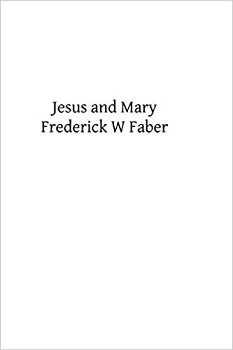








 Follow
Follow


